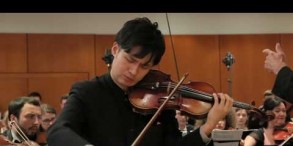Marcus Wallenberg Prize Awarded to Three Japanese Scientists
The Nobel Prize is awarded in chemistry and physics, etc. but not in mathematics or forestry industry. What the Fields Medal is to mathematics is what the Marcus Wallenberg Prize is to forestry and timber resources.
The Marcus Wallenberg Prize is not so well known in Japan but is a prize with a historical background awarded by the King of Sweden. The prize money is 2 million Swedish Kroner.
On September 28, three Japanese scientists were awarded this year's Marcus Wallenberg Prize for an ingenious study of a next-generation material "Cellulose Nano-Fiber" made from wood 1/5 lighter and 5 times harder than iron. Researchers at Purdue University have demonstrated this material can increase the tensile strength of concrete by 30%.
At the awarding ceremony in Stockholm, Sweden, Professor Akira Isogai and Assistant Prof. Tsuguyuki Saito, Department of Agriculture, Graduate School of biostudies, and Senior Researcher Yoshiharu Nishiyama, French National Scientific Research Center Polymers and Biomaterials Institute received the award as the first recipients from Asia.
If utilized for building houses and auto parts, the material can help minimize greenhouse gasses by reducing metal in production processes and improve fuel consumption by reducing the weight of vehicles. The Ministry of Environment is already studying possible verification projects.
Prof. Isogai commented, "It was a great pleasure for all of us to be awarded this prize. Our research is not yet linked to mass production and this prize should be an encouraging impetus for our work ahead".
Dr. Marcus Wallenberg (1899-1982), the founder of the Marcus Wallenberg Prize, was an outstanding figure in Sweden's industrial circles and abroad.
The Marcus Wallenberg Prize was instituted by Stora Kopparbergs Bergslags AB in 1980 in honor of Dr. Marcus Wallenberg who had long served the company as a director.










